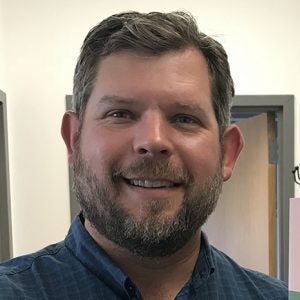Geoff Bothun, University of Rhode Island
Timo Küster, University of Rhode Island
Project Location
University of Rhode Island-Kingston
Project Description

This is a collaborative project with engineers, chemists, and biological scientists to fabricate a portable, low-cost Raman spectrometer that can be used to develop novel ultrasensitive nanotechnology-based sensors for environmental monitoring of nutrient pollutants (nitrogen and phosphorous) and emerging pollutants such as microplastics. By developing these instruments and sensors, our goal is that the technologies will be broadly accessible to improve environmental safety through community-based science. Students leading this project will have access to machine fabrication, computational, 3D printing, video, and microscopy tools to create devices that can be used to analyze new 2D and solution-based sensors. Narragansett Bay is our testbed, and we plan to use these devices in preliminary field studies. The SURF fellow(s) will join an inclusive team of students at URI focused on engineering the next generation of marine sensors, building both technical and professional skills over the duration of the summer.
This project involves both field and lab/computer work.
Required/Preferred Skills
This is an ideal project for students who enjoy working independently and applying engineering and science principles to design and create materials and devices. A basic understanding of materials, electricity, and spectroscopy is desired. Students should be comfortable working with their hands using common tools. They should also be comfortable working in the field in inclement weather or at non-standard hours.
Will students require their own transportation to field sites and/or other off-campus locations?
Transportation is desired but not required.

 RI NSF EPSCoR is supported in part by the U.S. National Science Foundation under EPSCoR Cooperative Agreements #OIA-2433276 and in part by the RI Commerce Corporation via the Science and Technology Advisory Committee [STAC]. Any opinions, findings, conclusions, or recommendations expressed in this material are those of the author(s) and do not necessarily reflect the views of the U.S. National Science Foundation, the RI Commerce Corporation, STAC, our partners or our collaborators.
RI NSF EPSCoR is supported in part by the U.S. National Science Foundation under EPSCoR Cooperative Agreements #OIA-2433276 and in part by the RI Commerce Corporation via the Science and Technology Advisory Committee [STAC]. Any opinions, findings, conclusions, or recommendations expressed in this material are those of the author(s) and do not necessarily reflect the views of the U.S. National Science Foundation, the RI Commerce Corporation, STAC, our partners or our collaborators.